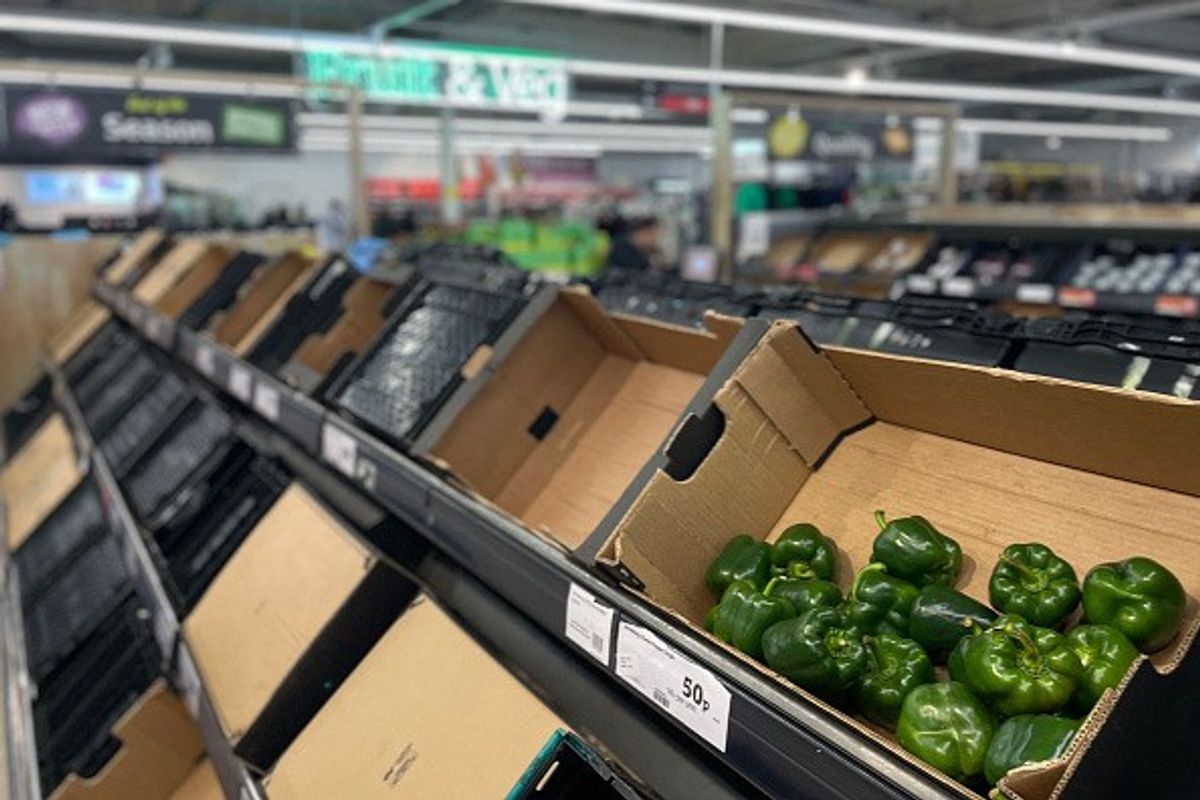A shortage of kitchen cupboard staples, caused by climate change, could lead to civil unrest within the next 50 years, believe food experts.
According to say researchers at the University of York and Anglia Ruskin University, food shortages caused by an increase in extreme weather events could potentially lead to civil unrest in the UK within 50 years. A shortage of popular staple carbohydrates such as wheat, bread, pasta, and cereal is most likely to trigger future unrest.
In a study published in the journal Sustainability, researchers asked 58 leading UK food experts whether they believed that disruption to the UK’s food supply chains – similar to that experienced during the Covid-19 pandemic – could cause civil unrest in the next 10 and 50 years. The study defines civil unrest as the ‘violent injury of more than 30,000 people in one year, due to … violent looting, strikes, demonstrations, or crime including hate crime’.
More than 40 per cent of the experts surveyed believe that unrest was either possible or more likely than not in the next 10 years, increasing to nearly 80 per cent over the next 50 years.
Extreme weather events – such as storms, flooding and drought – were believed to be the most likely cause of food shortages and food distribution issues over both the 10-year and 50-year time frames.
Sarah Bridle, professor of food, climate and society at the University of York, says, "Covid-19, Brexit and the cost of living crisis have shown the UK is already exposed to certain risks. It is entirely possible that in the coming decades extreme weather will cause major crop yield failures across multiple breadbaskets. We need a food system designed not just for optimal efficiency, but also for resilience."
The UK’s food supply chains are particularly vulnerable to disruption due to a heavy reliance on imports: almost half of all food and 84 per cent of the country’s fresh fruit is imported. As such, any disruption to imports and supply chains can have a significant impact on food availability in the UK.


